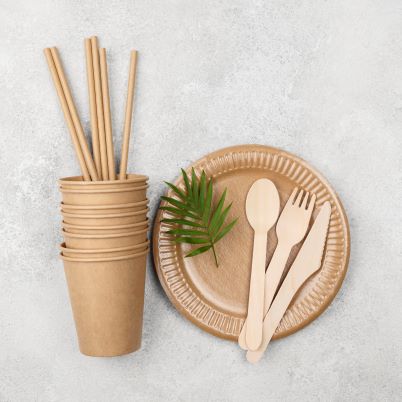Bamboo has gained attention as a potential alternative to plastic due to its various properties and environmental benefits. Here are several ways in which bamboo can replace plastic:
Packaging:
Bamboo can be used to create biodegradable and compostable packaging materials. It can be processed into fibers or molded into various forms to replace plastic packaging, such as bags, trays, cups, and containers.Utensils and cutlery:
Bamboo can be shaped and treated to create biodegradable utensils and cutlery, including spoons, forks, and chopsticks. These alternatives can replace single-use plastic utensils, reducing plastic waste.Straws:
Bamboo straws are becoming increasingly popular as a sustainable alternative to plastic straws. They are reusable, durable, and biodegradable, reducing the environmental impact of single-use plastic straws.Textiles:
Bamboo fibers can be used to make fabrics, such as bamboo rayon or bamboo linen. These textiles are eco-friendly, as bamboo grows quickly, requires fewer resources compared to conventional textiles, and is naturally pest-resistant, reducing the need for pesticides.Building materials:
Bamboo can be used as a substitute for plastic-based materials in construction. It is strong, lightweight, and flexible, making it suitable for a variety of applications, such as flooring, walls, and furniture. Bamboo-based composites can also be used to create durable and environmentally friendly alternatives to plastic-based materials.Bioplastics:
Bamboo can be processed to extract cellulose, which can then be used to produce bioplastics. Bioplastics derived from bamboo are biodegradable, renewable, and have a lower carbon footprint compared to traditional petroleum-based plastics.Charcoal filters:
Bamboo charcoal can be used as an alternative to plastic-based water filters. It has natural adsorption properties that can effectively remove impurities and contaminants from water, making it a sustainable choice for water filtration systems.- It's important to note that while bamboo has many advantages over plastic, its production and processing can still have environmental impacts. Sustainable and responsible sourcing, as well as proper waste management, are crucial to ensuring that bamboo truly becomes an environmentally friendly alternative to plastic.
